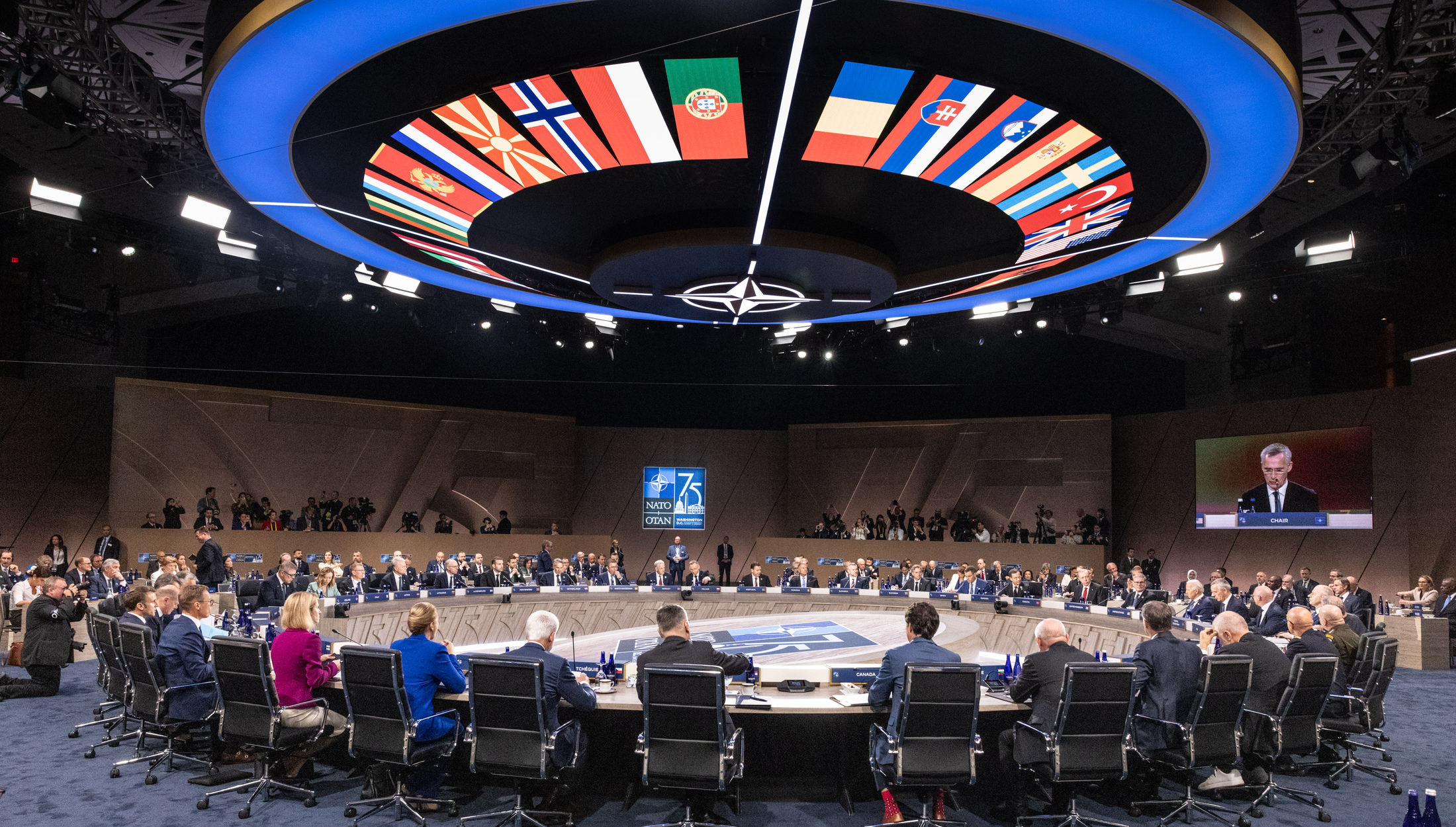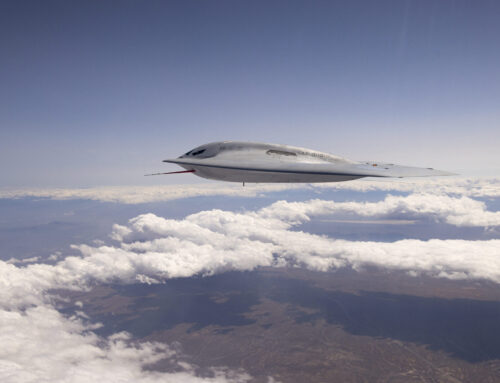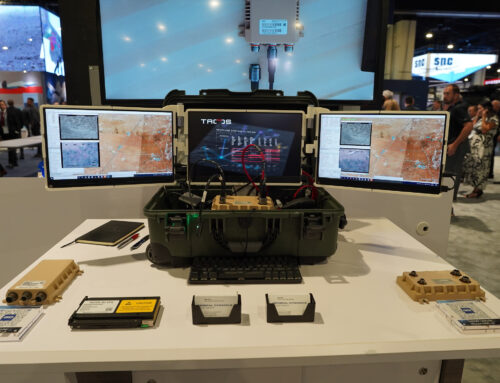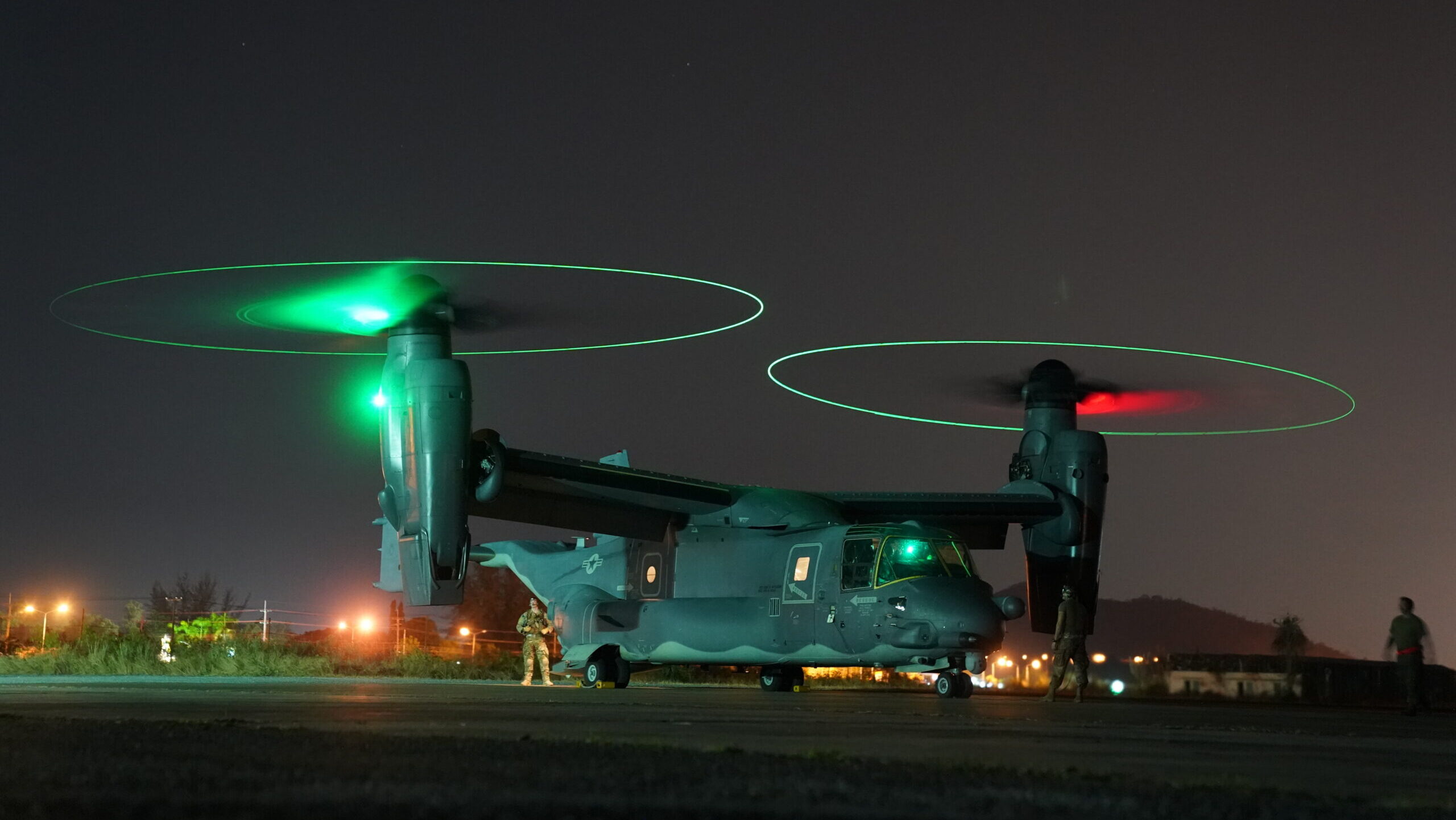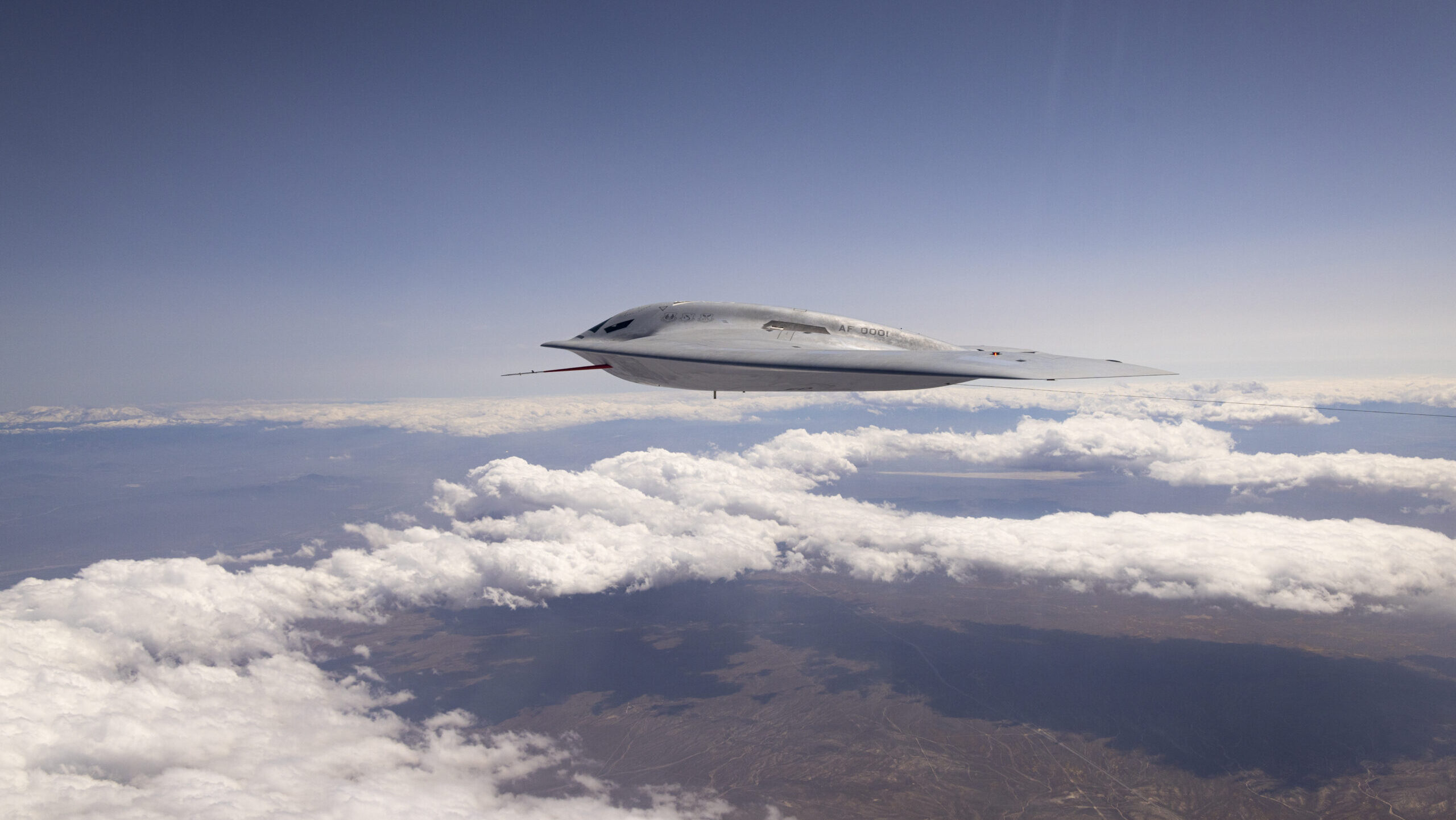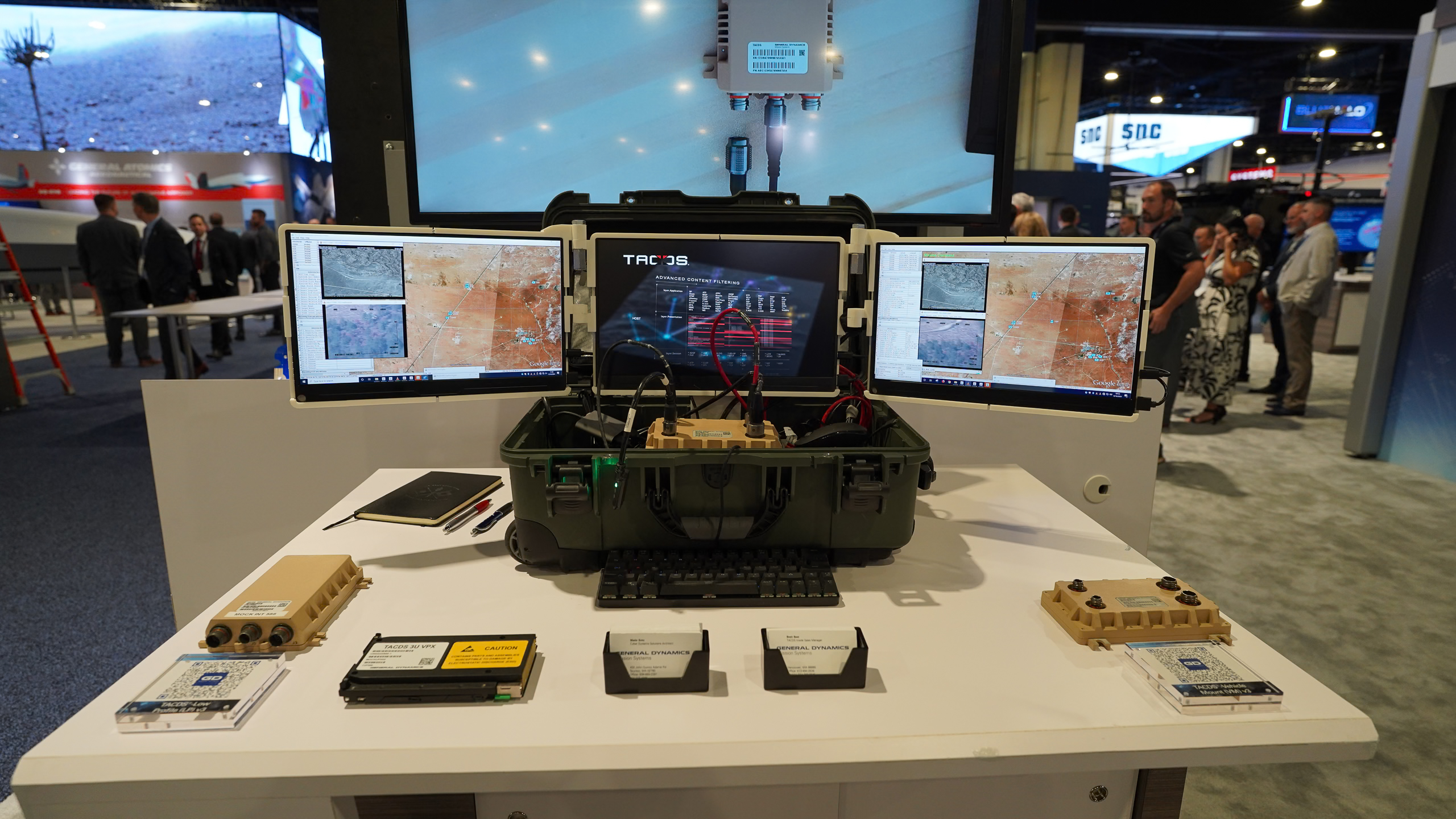Heads of state attend a North Atlantic Council meeting during the NATO Summit in Washington (NATO)
BELFAST — The NATO-led Defence Innovation Accelerator for the North Atlantic (DIANA) has selected 10 companies to move into Phase II of its accelerator program as the alliance steps up efforts to secure technological advantages over adversaries.
Aquark Technologies (UK), Astrolight (Lithuania), Dolphin Labs (US), Ephos (Italy), Gridlock (UK), IONATE (UK), Lobster Robotics (Netherlands), Phantom Photonics (Canada), Revobeam (Poland) and Secqai (UK) all made the cut after squeezing out applications from 34 rival start ups.
The chosen firms are involved in developing “deep technology” solutions aligned to one of three defense and security “challenges” identified by NATO allies: sensing and surveillance, energy resilience, and secure information sharing, according to an alliance statement today.
More specifically, quantum devices, smart renewable energy platforms, underwater drones and intelligent antennas are among the technologies and vehicles under development.
To secure passage to Phase II, applicant solutions were judged against a series of criteria ranging from “technological potential, commercial viability, relevance to end-users and investment maturity” added NATO.
All those involved in the new phase are eligible to receive additional funding of up to €300,000 ($330,000) and “assistance to adapt their ideas for commercial use,” noted the alliance.
It said during the first phase of the accelerator effort, launched in 2023, 44 start-ups “benefited from world-class training and expert advice to develop their technologies and adapt them to defence and security requirements.”
Additionally, DIANA kickstarted five new “challenges” in July 2024. A cohort of new innovators will be selected from a competition involving more than 2600 applicants and go on to join the accelerator in early 2025.
The accelerator has host sites based in Denmark, Estonia, Italy and the US.


